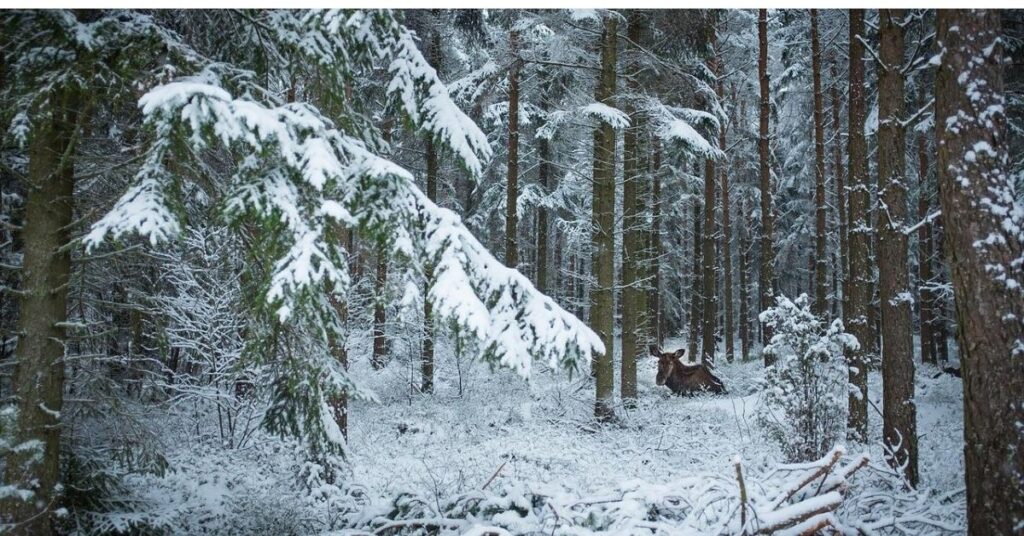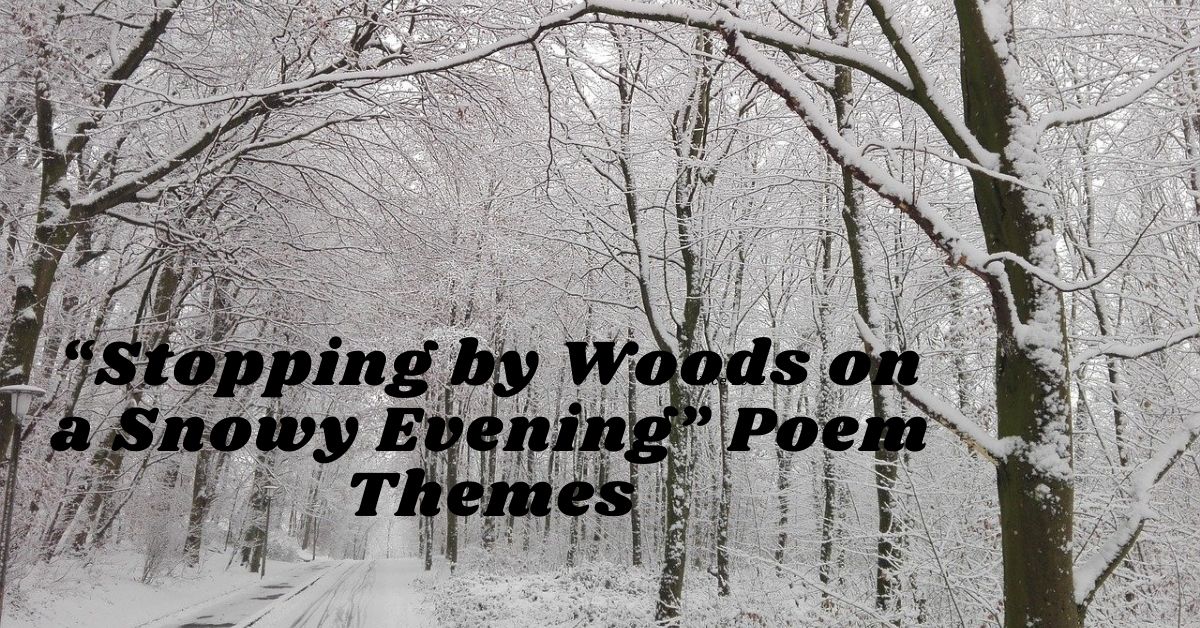Introduction
“Stopping by Stopping by Woods on a Snowy Evening” by Robert Frost is a symbolic poem. It does not take the readers to a rural setting but also makes them experience the depicted scenes. It begins when the speaker is present in somebody else’s woods whom he knows. He informs the readers that the owner of this house lives in the village. Therefore, he won’t notice the speaker’s presence in his woods. Being a lover of nature, he has stopped in the woods to have a specular view of falling snow that how it covers the entire wood.
After describing the place and purpose of staying, the writer introduces the readers to his horse. He states that even his horse finds it strange that they have stopped in the middle of the forest. Although there is a farmhouse near the woods, he prefers staying between the woods and the frozen lake during the darkest evening of the year. The speaker calls it a darker evening of the year, implying the absence of hope in his life.
He further states his companion’s curiosity; the horse shakes the bell of his harness as if asking if his master has made the mistake of stopping. Since it’s a silent place, the horse’s bells produced a noticeable sound. But the speaker focuses on other sounds present in that lonely place, such as the sound of the wind and falling snowflakes.
After enjoying the serenity and peace of the woods, the speaker decides to make a move. Although the place is attractive, lovely, and deep, yet he has duties to perform. The pull of the responsibilities and promises urge him to leave the unbound pleasure and get back to reality. He realizes that he has to perform various tasks before he meets his end.

Major Themes in “Stopping by Woods on a Snowy Evening”
The poem, “Stopping by Stopping by Woods on a Snowy Evening” displays the following themes.
1. Unparalleled Beauty of Nature
This is the central theme of the poem. The poem comprises the thoughts of an adult who intentionally pauses his life for a moment to enjoy the bounties of nature. The images of the dark, deep and lonely woods, cool weather, and frozen lake connect the readers with the writer’s thoughts. He is tempted to the calmness, serenity, and silence of the place where he can hear even the unheard sounds. The quietness of the woods allow him to listen to the music of the wind and enjoy the gentle touch of falling snow.
2. Journey
The journey is another important theme of the poem. The speaker of the poem is a traveler. The readers are not informed about the start and end of his journey. All they know is that he stops in the woods, far from human civilization, to enjoy the magnificent beauty of nature. His mysterious journey leaves a significant message to the readers that one should not compromise his wishes while chasing his desires.
3. Man versus Nature
Man Versus nature is another evident theme of the “Stopping by Stopping by Woods on a Snowy Evening” . The poem presents a tussle between the speaker’s innermost desire and his worldly duties. His stopping reflects his wishes to pause life to live only for himself. However, the continuation of his travel depicts the powerful drag of worldly responsibilities. The writer beautifully shows how sometimes we have to keep our wishes aside and accept what life offers us.
4. Hesitation and Choice
Throughout the poem, the speaker seems stuck between society’s obligation and nature’s offer of reflection and solitude. He is tempted to the matchless beauty and wants to stay as a loner, but the considerable distance from his duties hinders his peace. It pushes him back to the place where he has to fulfill many promises before his sleep.
5. Death in “Stopping by Stopping by Woods on a Snowy Evening”
The writer has not implied this theme directly in the poem. Instead, it is reflected in the final stanza, where he decides to continue his journey. The repetition of the verse, “And miles to go before I sleep,” shows that he is approaching the end of life. Therefore, after taking a short pause, he chooses to catch the normal pace of life, where he had to accomplish various tasks before his death.
See Also:
The Runaway by Robert Frost Analysis

